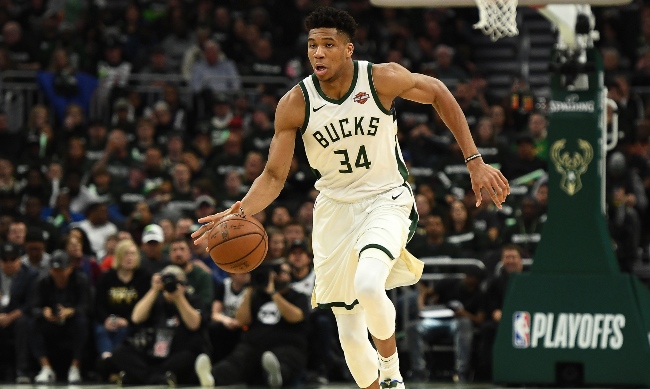
Under the stewardship of Adam Silver, the NBA isn’t afraid of radical changes. Just look at one of the commissioner’s most recent proposals, i.e. to incorporate some sort of midseason tournament into the schedule to boost viewership, a la the G League. But changes of that magnitude have all sorts of fiscal implications. That’s always the biggest obstacle when we start talking about major alterations to the schedule or to the playoff seeding, which hoops pundits have long argued should be given to the top 16 teams, regardless of conference.
Normally, the league isn’t in the business of looking backward, but there’s one instance in which it might make sense to institute a glorious return to the way things used to be: having a Best of 5 series in the opening round. If the league really wants to capture some of the madness that infects college basketball this time of year, and reap some of the many benefits that come along with it, this is the best way to do it.
In a best of seven series, the better team typically prevails. In a best of five series, anything could happen…theoretically, and we have the evidence to prove it. In 1999, the New York Knicks became the first No. 8 seed to ever reach the Finals, and that wouldn’t have been possible without knocking off the top-seeded Heat in the opening round, 3-2.
The last time a No. 8 seed beat a No. 1 seed in a best-of-seven series was 2012, when the Sixers knocked off the Bulls. It is a rare and precious thing, and the lack of bonafide Cinderella story every spring is unfortunate. Today, we have to settle for single-game heroics like we saw out of the Clippers against the Warriors.
With the way the talent gap has closed in both conferences this season, we have all the evidence we need as to why this would inject some new life into the playoffs. The Raptors, Nuggets, and Sixers all dropped their first games on their home floors. Think of the pressure-cooker environment for each successive game if two more losses meant a humiliating elimination. The ripple effects of that could be catastrophic for the hapless teams involved, which means endless entertainment for fans and mountains of content fodder for the blog boys like us.
Since the league moved to a seven-game opening round in 2003, the higher-ranked teams have enjoyed a statistical edge that is not insignificant. And therein lies one of the many drawbacks, at least for the league and its pocketbook. Naturally, the NBA wants as many of its superstars playing deep into the postseason as possible. A chaotic opening round might undermine that.
It doesn’t take a marketing wizard to understand that increased drama could drive more interest early on in the postseason. Plus, the NBA’s second season is precisely that. It feels like a whole other season. “40 Games in 40 Nights” is a nice catchphrase, but viewer fatigue is a real danger over the course of two months worth of playoff basketball. A quicker opening round would grease the wheels on things.
Plus, let’s face it: Basketball players play too many games already, and the playoffs are awfully long. The calculus on resting players at the end of the season with the margin of error would change, sure, but that would just be because of the stakes at the start of the playoffs. This shortens the postseason ever so slightly, and gets rid of the some more unnecessary aspects of the playoffs — for example, there is no reason we need four games of the Bucks throttling the Pistons. We can cut that down, save some of the mileage on Milwaukee’s players, and move on.
Will we actually see it? It’s hard to imagine the NBA sacrificing that much advertising revenue. That’s been the sticking point with any proposed changes to the current schedule. But again, Silver has never shied away from bold ideas. The result would be better, more compelling basketball at the right time, and it would help level the playing field some for lower seeds that have historically been little more than first-round fodder for the top contenders. It’s time for the NBA to think small.






